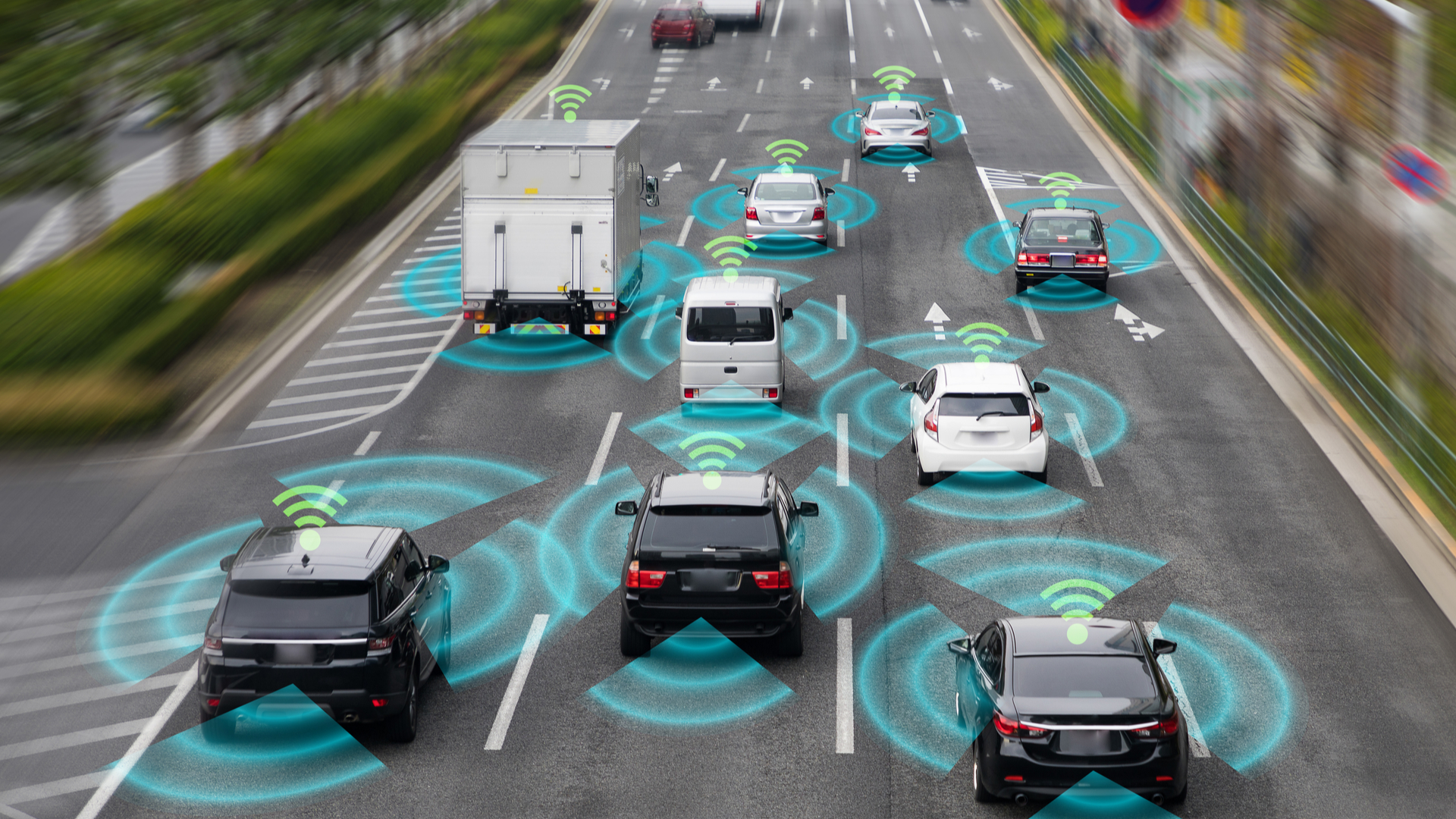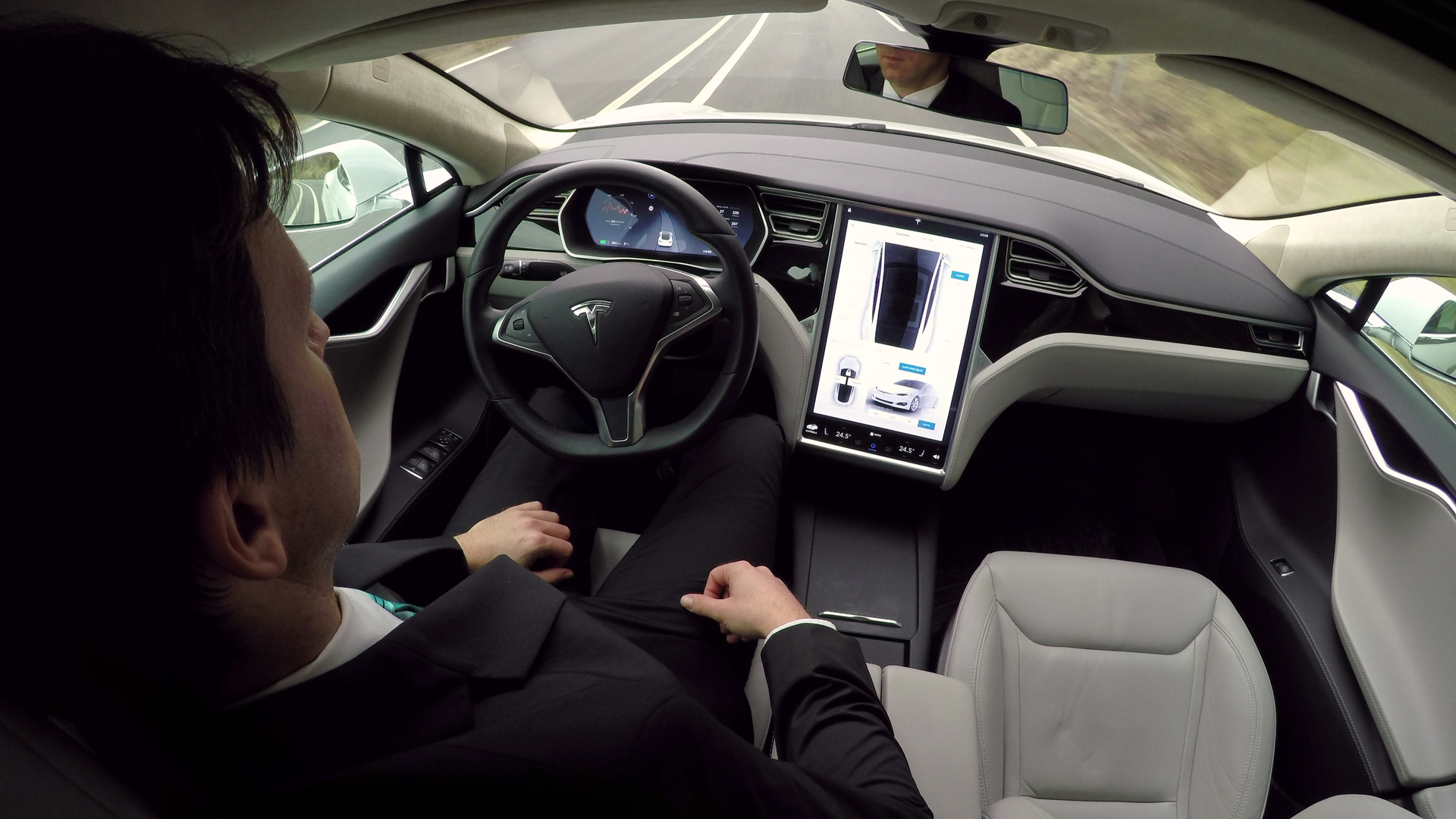Self-driving cars expected on UK roads in 2021, but don't get too excited just yet

Motorists could see self-driving vehicles on British roads as early as this year, the UK government has announced.
Britain had been one of many European countries remaining reluctant to approve autonomous driving technology regulations – Tesla's Full Self-Driving (FSD) mode, for example, has for a long time only been available in certain areas of the US.
Now, though, the Department for Transport has said that automated lane-keeping systems (ALKS) would be the first type of hands-free driving legalised in the country, paving the way for further regulatory relaxations in the future.
- Everything we know about the Apple Car
- It's official: DJI is moving into self-driving cars
- The Audi A6 e-tron concept is bold and bonkers
ALKS systems control the position and speed of a car in a single lane up to speeds of 37mph, and the government has said that vehicles fitted with this technology would legally be defined as self-driving.
As per the new legislation – which is expected to be passed in the spring of 2021 – drivers would still need to be able to regain full control of their vehicle within 10 seconds. If not, updates to the Highway Code may see these 'self-driving' vehicles be forced to stop at the roadside.
ALKS technology is by-and-large comparable to Tesla’s Autopilot system, considered level two on the five defined levels of self-driving cars (which range from driver assistance to full automation).
A technology which has already been in use in Britain for several years, Autopilot helps drivers keep their Tesla in the right lane, and avoids accidents by slowing down or maneuvering around obstacles while being under the recommended speed limit.
Sign up for breaking news, reviews, opinion, top tech deals, and more.

Autopilot still requires the driver's full attention, though, and the UK government suggests ALKS systems would not require driver's to constantly monitor the road or keep their hands on the wheel when the vehicle is driving itself.
The move from level two to level three on the self-driving car chart would mark the biggest leap yet towards the widespread use of autonomous vehicles, since it would represent a point at which drivers wouldn't need to maintain road attention at all times.
The green light for ALKS technology in the UK is, at least, a step towards this self-driving vision, and lays down a marker to other nations who were similarly-hesitant to embrace the benefits of an autonomous future.
"This is a major step for the safe use of self-driving vehicles in the UK, making future journeys greener, easier and more reliable while also helping the nation to build back better," said Transport Minister Rachel Maclean.
A long road ahead
Despite representing a major milestone in the widespread regulation of this emerging technology, there is still a great deal of work to be done to ensure self-driving vehicles are road-safe.
UK insurers have warned that the government's definition of ALKS as 'self-driving' technology is misleading, and might encourage drivers to place too much faith in a system still in its infancy.
Only recently, a Tesla Model S was involved in an accident that killed two people in the Houston suburb of Spring, Texas. While recovered data logs revealed that Autopilot was not enabled at the time of the accident, it nonetheless prompted questions over the tenuous safety of self-driving vehicles interacting with regular vehicles.
Given that ALKS-enabled cars are soon set to join Autopilot-enabled Teslas on UK roads, it’s safe to say we can expect a bumpy ride ahead.
Via BBC News

Axel is TechRadar's Phones Editor, reporting on everything from the latest Apple developments to newest AI breakthroughs as part of the site's Mobile Computing vertical. Having previously written for publications including Esquire and FourFourTwo, Axel is well-versed in the applications of technology beyond the desktop, and his coverage extends from general reporting and analysis to in-depth interviews and opinion.
Axel studied for a degree in English Literature at the University of Warwick before joining TechRadar in 2020, where he earned an NCTJ qualification as part of the company’s inaugural digital training scheme.